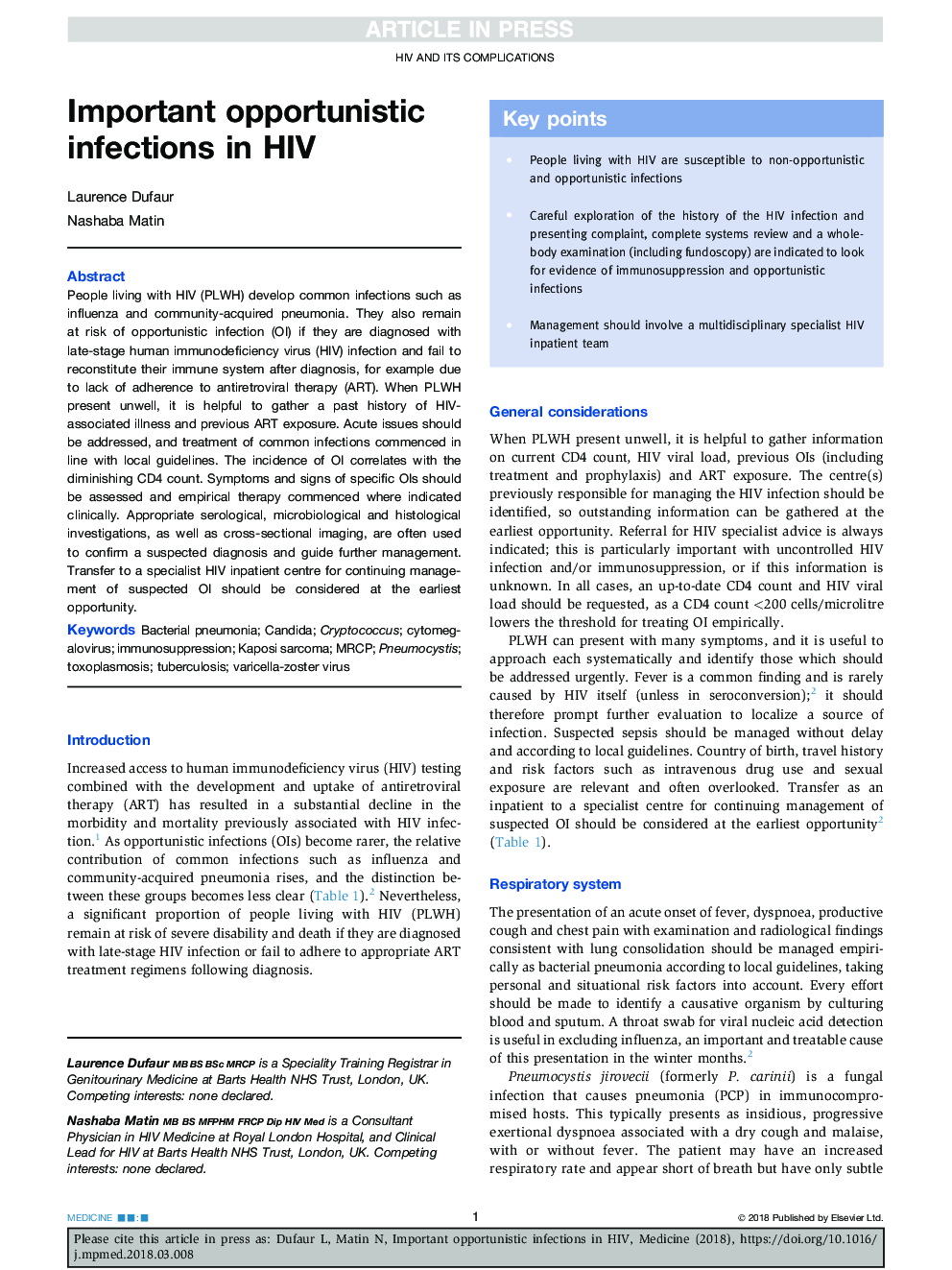| Article ID | Journal | Published Year | Pages | File Type |
|---|---|---|---|---|
| 8764013 | Medicine | 2018 | 4 Pages |
Abstract
People living with HIV (PLWH) develop common infections such as influenza and community-acquired pneumonia. They also remain at risk of opportunistic infection (OI) if they are diagnosed with late-stage human immunodeficiency virus (HIV) infection and fail to reconstitute their immune system after diagnosis, for example due to lack of adherence to antiretroviral therapy (ART). When PLWH present unwell, it is helpful to gather a past history of HIV-associated illness and previous ART exposure. Acute issues should be addressed, and treatment of common infections commenced in line with local guidelines. The incidence of OI correlates with the diminishing CD4 count. Symptoms and signs of specific OIs should be assessed and empirical therapy commenced where indicated clinically. Appropriate serological, microbiological and histological investigations, as well as cross-sectional imaging, are often used to confirm a suspected diagnosis and guide further management. Transfer to a specialist HIV inpatient centre for continuing management of suspected OI should be considered at the earliest opportunity.
Keywords
Related Topics
Health Sciences
Medicine and Dentistry
Medicine and Dentistry (General)
Authors
Laurence Dufaur, Nashaba Matin,
